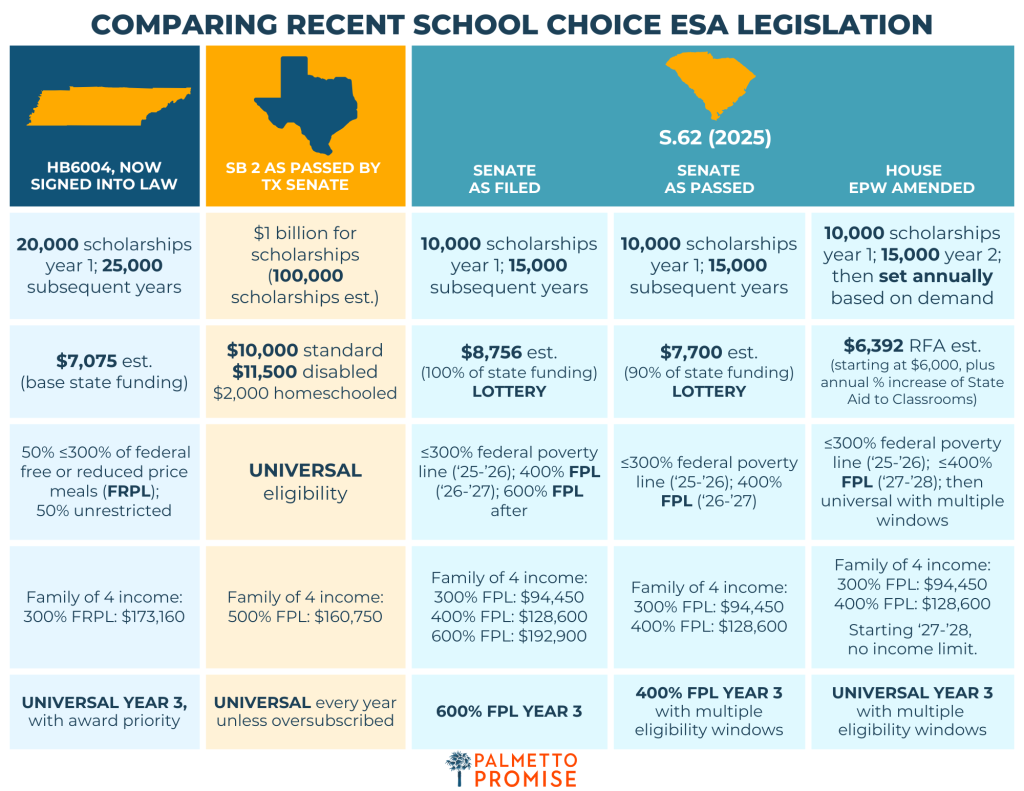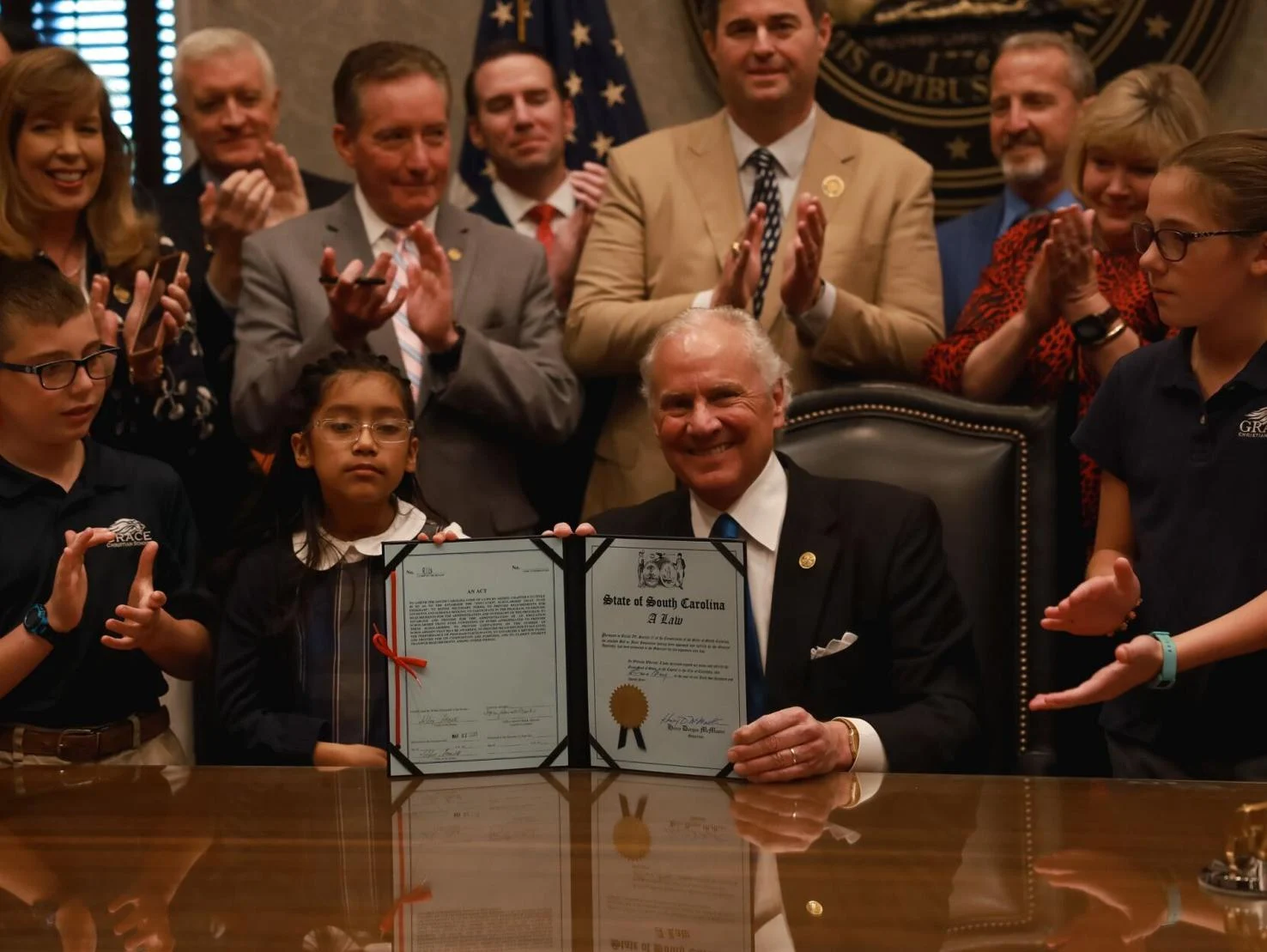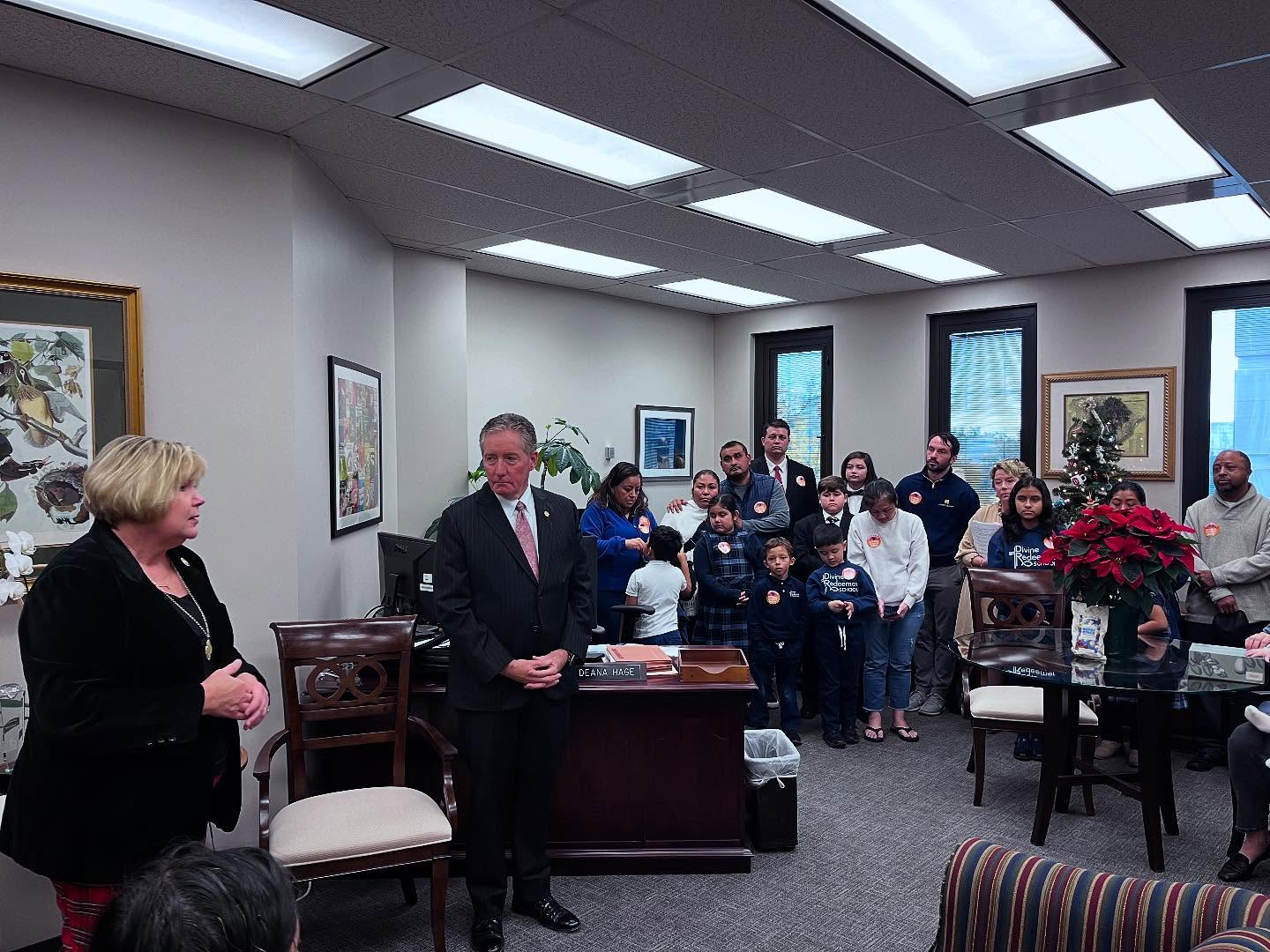House Education Committee Advances Universal ESA Bill
This week, the House Education & Public Works Committee held a hearing on the bill that would restore school choice in South Carolina following the SC Supreme Court’s decision that left thousands of SC families with their promised scholarships ripped away.
S.62 as passed by the South Carolina Senate would reinstate Education Scholarship Accounts (ESAs) by drawing funding from the SC state lottery. The details of the scholarships otherwise are almost identical to what was passed in 2023 in S.39; in 2025-26, 10,000 scholarships would be available for households at 300% of the federal poverty line (FPL) or below. Those numbers would increase to 15,000 and 400% in 2026-27. The original draft of S.62, filed by Senate Education Chair Greg Hembree, would have increased the income threshold to families within 600% of the federal poverty line, creating a nearly-universal program with over 90% of SC school-aged children eligible. Unfortunately, the Senate ultimately voted to move the income limit back down to 400% FPL.
Yesterday, after hearing hours of testimony from parents in the 2024-25 Education Scholarship Trust Fund program and debating until nearly 8pm, the House Education Committee amended S.62 to open the ESTF program up to be universal, while still maintaining priority for lower income families and other key groups.
Here are some of the key components of the Education Chairlady Shannon Erickson’s plan for ESTF:
- Funds would be drawn from the general fund, not from lottery funding. The distinction is drawn from the funding mechanism of S.39 by establishing a true trust fund as defined in state law, managed by a Superintendent-appointed Trustee. Chairlady Erickson holds that this setup, distinct from S.39, is a constitutional way of allocating funds. Committee Research Director Pierce McNair explained it this way: “Once the dollars are appropriated, the dollars go to a trust fund, administrated by a trustee, so they are no longer state dollars – they are ESTF dollars.”
- Household income limits would continue as written in S.39, with families within 300% FPL eligible in 2025-26 and 400% FPL in 2026-27. Then, starting in 2027-28, no income limits would exist anymore, making the program universal. Again, however, priority spots would remain for lower-income groups and other specified groups.
- The groups with early priority (via early enrollment windows) would include the previous year’s ESTF recipients, their siblings, children with a parent or guardian on active military duty, households within 300% FPL, children in custody of DSS, and children with exceptional needs. (note – ESTF would not be allowed to stack with tax credits from the existing Exceptional SC program).
- Just like the Senate bill, the prior public school attendance eligibility requirement would be removed.
- The scholarship amount for each student would be lowered from 90% of state per pupil funding (as the Senate’s bill established, equalling about $7,700) back to $6,000 like the original ESTF bill. However, each year, the $6,000 would increase by the percentage increase in the state funding to local public school districts.
- The number of scholarships available would mirror S.39 for the two years remaining before universal eligibility. Thus, in 2025-26, 10,000 scholarships would be awarded, and in 2026-27, 15,000 scholarships would be awarded. After that, the number of scholarships would have no cap, leaving it up to the General Assembly to set the scholarship amount based on budget availability each year.
- The “wellness check” provision from S.39 remains removed, like the Senate bill did.
- Language is included to provide for interdistrict transfer (aka “open enrollment”) in every school district, fees for which can be covered with ESTF.
We are glad to see these changes adopted in committee and hope to see them upheld on the House floor next week. As many South Carolina families as want access to school choice should be able to use them, and we should always prioritize those most in need of school choice funding.
This universal change brings the proposed SC bill more in line with the expansive ESA programs recently debated in Texas and Tennessee, as well as other states in the Southeast (like Alabama and North Carolina) that have recently adopted universal ESAs.
S.62 is expected to be debated by the full House of Representatives next week. Let’s get this done, South Carolina, and save school choice!
COMPARE THE HOUSE’S AMENDMENTS WITH THE SENATE-PASSED VERSION






